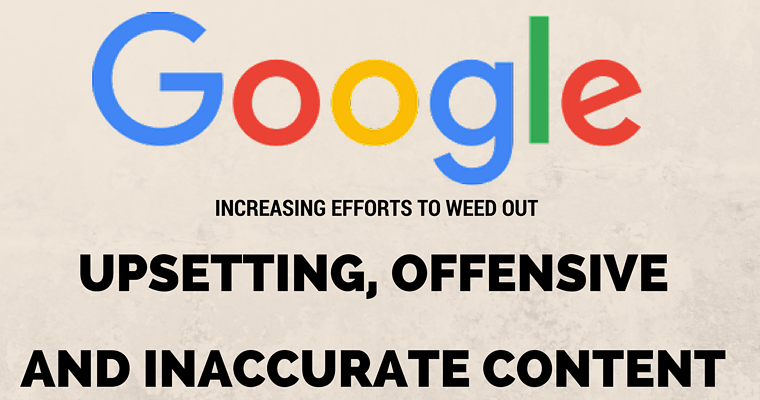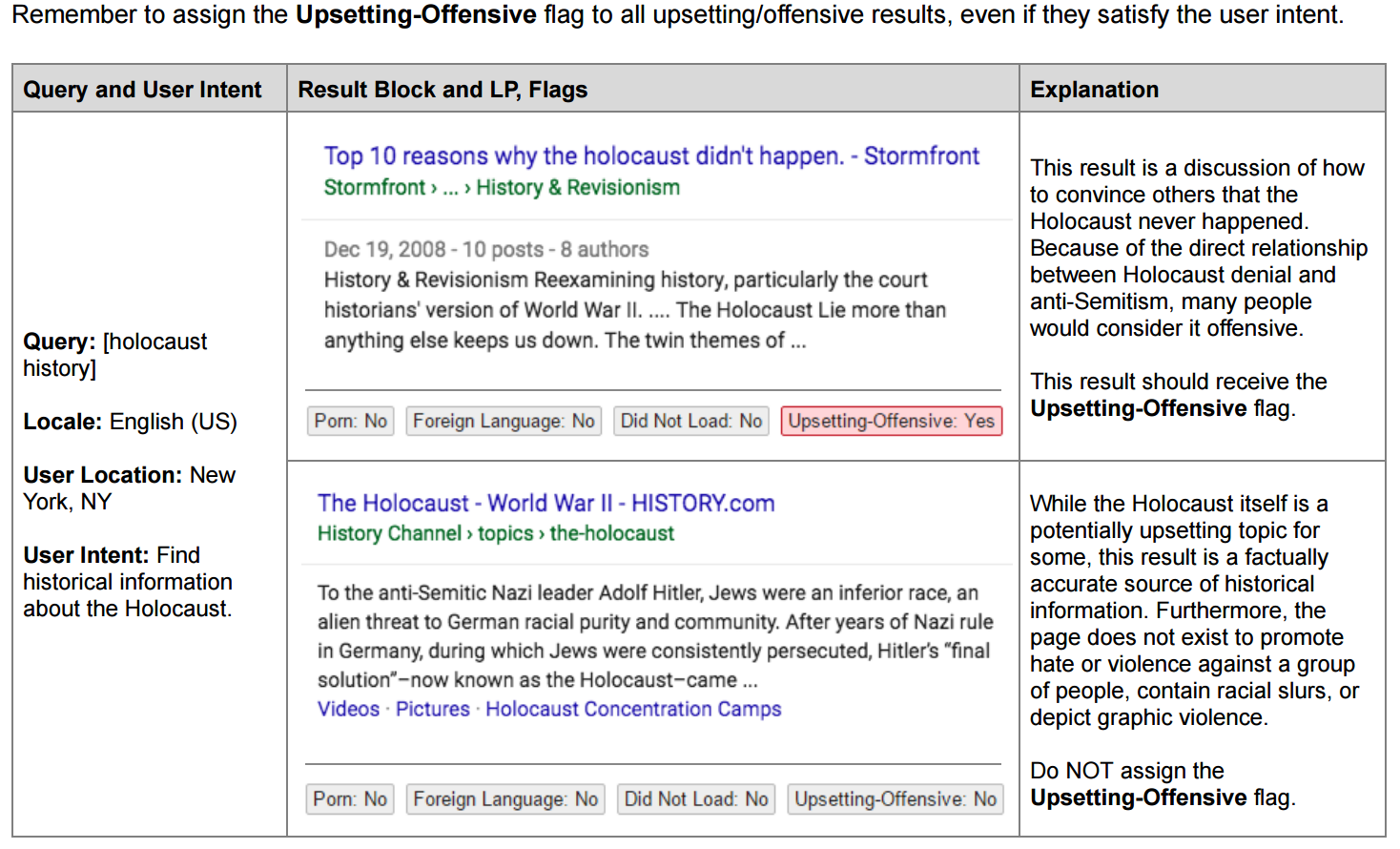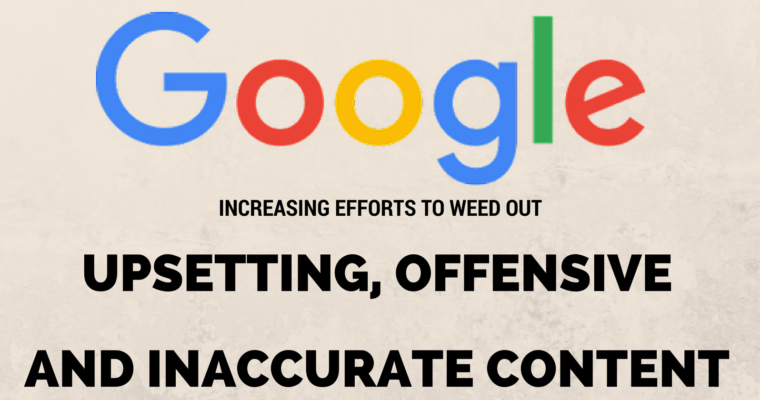
Google has updated its search quality evaluator guidelines with a section directing quality raters how to flag inaccurate, offensive, or upsetting content. With these directions put in place, Google is strengthening its efforts to surface more factually accurate and reliable sources in search results.
It is the responsibility of Google’s quality raters to conduct real-life queries and evaluate the pages returned in terms of how well they satisfy the query. A new section has been added to the 160-page document with guidance on how to rate “Upsetting-Offensive Results”.
Evaluating Upsetting-Offensive Content
The addition to Google’s quality evaluator guidelines instructs quality raters to assign the Upsetting-Offensive flag to all results which may be considered offensive or upsetting, even if the results satisfy the user’s query. In other words, even in instances where the query may be intentionally requesting upsetting or offensive information, the web pages returned should still be flagged if they meet the criteria.
According to Google, Upsetting-Offensive content typically includes the following:
- Content that promotes hate or violence against a group of people based on criteria including (but not limited to) race or ethnicity, religion, gender, nationality or citizenship, disability, age, sexual orientation, or veteran status.
- Content with racial slurs or extremely offensive terminology.
- Graphic violence, including animal cruelty or child abuse.
- Explicit how-to information about harmful activities (e.g., howtos on human trafficking or violent assault).
- Other types of content which users in your locale would find extremely upsetting or offensive.
Google also provides a visual example:

The above example refers to a query in which the user is seeking historically accurate information about the Holocaust. The first result returned in the example is a web page about Holocaust denial on a white supremacist site, which quality raters are instructed to flag as Upsetting-Offensive.
The second result returned in the example above is a page on the History Channel website. Despite the Holocaust being a potentially upsetting topic, quality raters are instructed to NOT mark it as Upsetting-Offensive because it’s a factually accurate…

COMMENTS